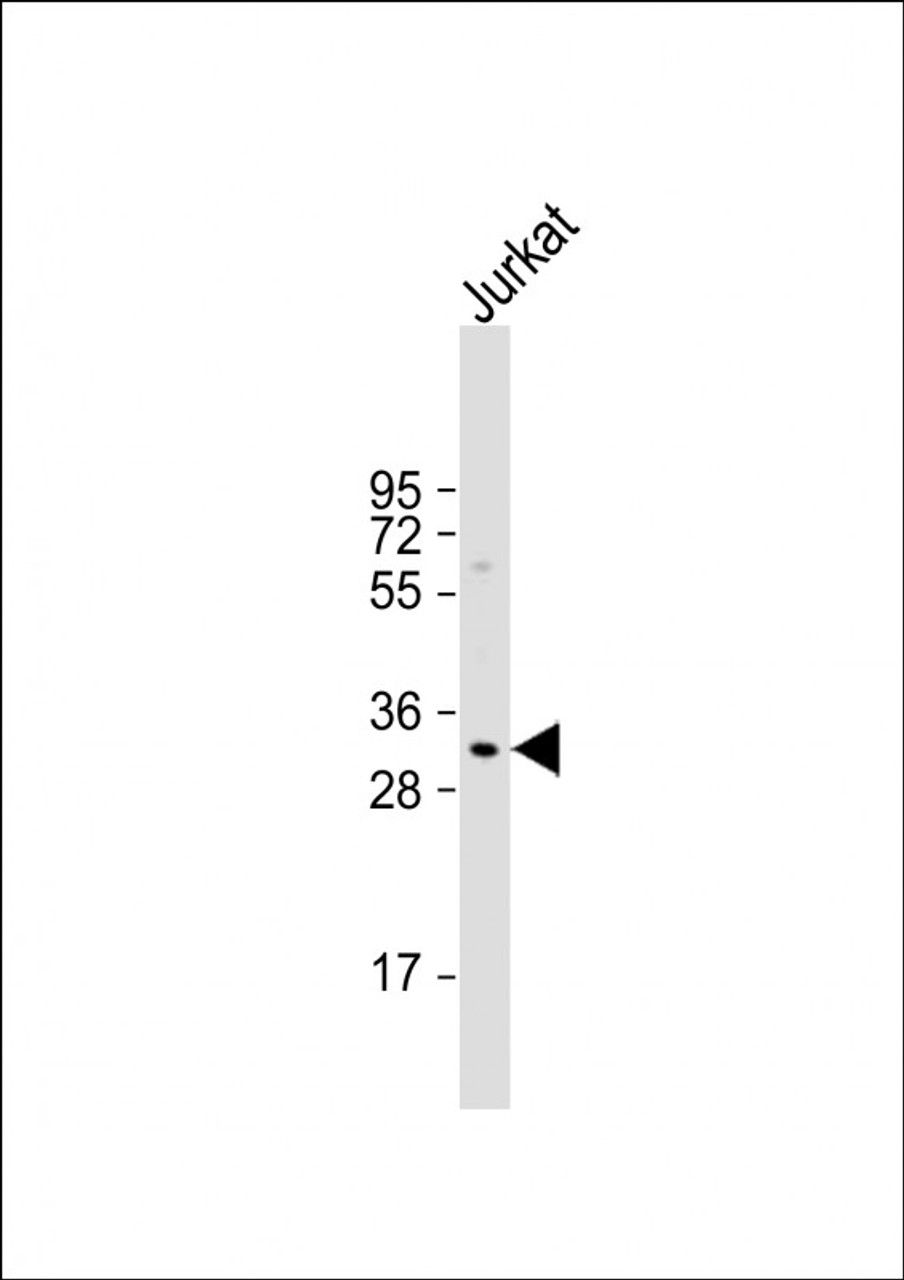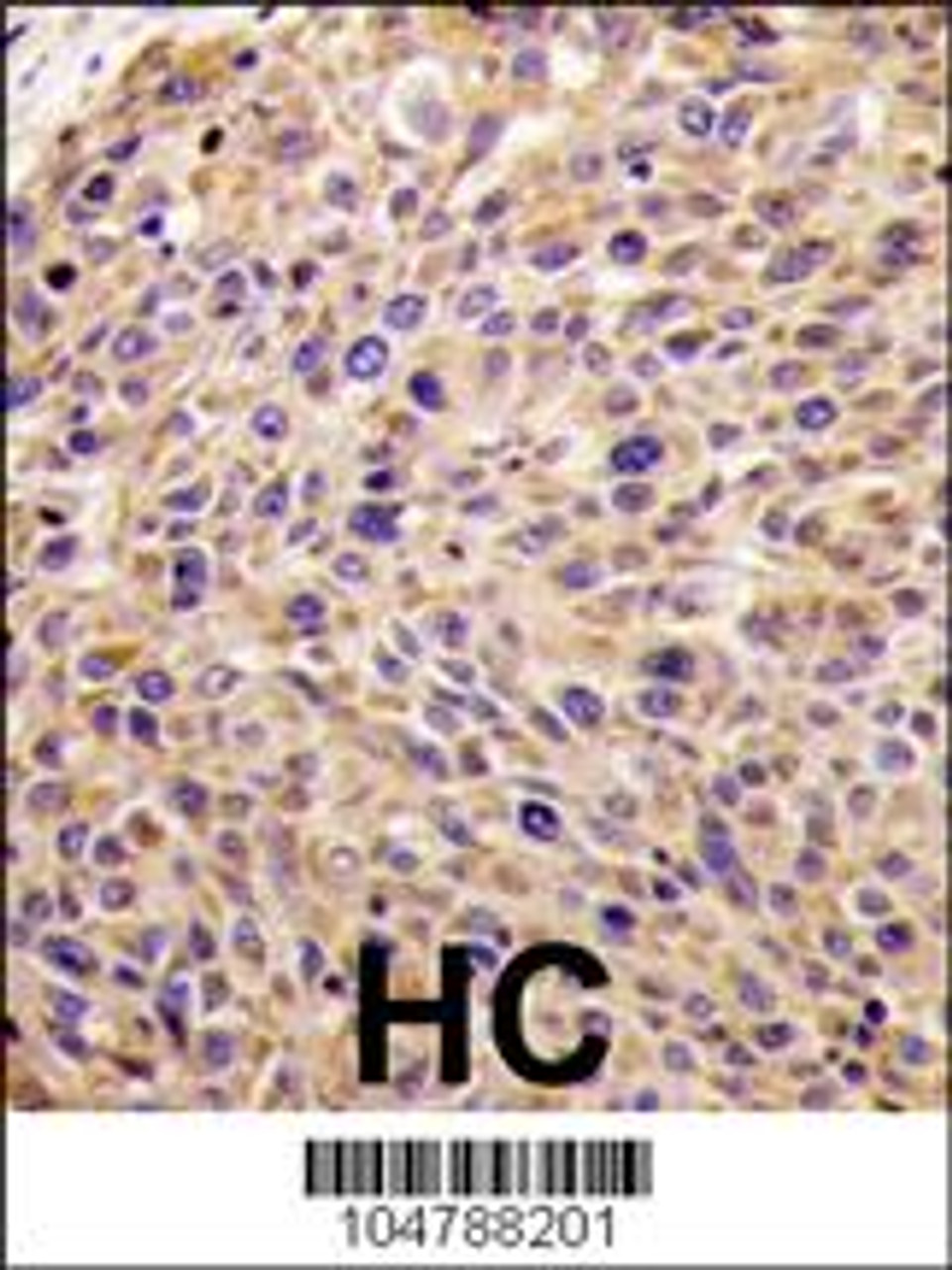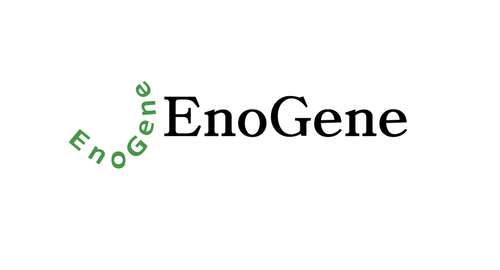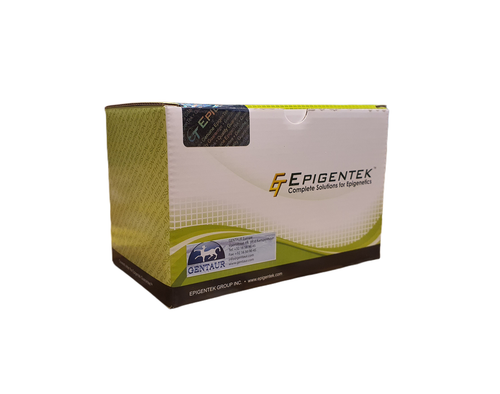Product Description
GGPS1 Antibody | 61-391 | ProSci
Host: Rabbit
Reactivity: Human
Homology: Predicted species reactivity based on immunogen sequence: Bovine, Rat
Immunogen: This GGPS1 antibody is generated from rabbits immunized with a KLH conjugated synthetic peptide between 16-46 amino acids from the N-terminal region of human GGPS1.
Research Area: Cancer, Cell Cycle, Obesity
Tested Application: WB, IHC-P
Application: For WB starting dilution is: 1:1000
For IHC-P starting dilution is: 1:10~50
Specificiy: N/A
Positive Control 1: N/A
Positive Control 2: N/A
Positive Control 3: N/A
Positive Control 4: N/A
Positive Control 5: N/A
Positive Control 6: N/A
Molecular Weight: 35 kDa
Validation: N/A
Isoform: N/A
Purification: This antibody is prepared by Saturated Ammonium Sulfate (SAS) precipitation followed by dialysis
Clonality: Polyclonal
Clone: N/A
Isotype: Rabbit Ig
Conjugate: Unconjugated
Physical State: Liquid
Buffer: Supplied in PBS with 0.09% (W/V) sodium azide.
Concentration: batch dependent
Storage Condition: Store at 4˚C for three months and -20˚C, stable for up to one year. As with all antibodies care should be taken to avoid repeated freeze thaw cycles. Antibodies should not be exposed to prolonged high temperatures.
Alternate Name: Geranylgeranyl pyrophosphate synthase, GGPP synthase, GGPPSase, 251-, (2E, 6E) -farnesyl diphosphate synthase, Dimethylallyltranstransferase, Farnesyl diphosphate synthase, Farnesyltranstransferase, Geranylgeranyl diphosphate synthase, Geranyltranstransferase, GGPS1
User Note: Optimal dilutions for each application to be determined by the researcher.
BACKGROUND: Geranylgeranyl diphosphate (GGPP) synthase (GGPS) catalyzes the synthesis of GGPP, a molecule responsible for the C20-prenylation of protein and for the regulation of a nuclear hormone receptor. The deduced 300-amino acid human protein contains 5 conserved domains consistent with prenyltransferases. Recombinant GGPS shows enzymatic properties associated with the synthesis of GGPP from farnesyl diphosphate and isopentenyl diphosphate. Mouse GGPS is regulated in several tissues in obesity and is induced during adipocyte differentiation. GGPS is increased 5- to 20-fold in skeletal muscle, liver, and fat of ob/ob mice. Western blot analysis detects a 2-fold overexpression of protein in muscle and fat but not in liver. Differentiation of mouse fibroblasts into adipocytes induces GGPS expression more than 20-fold.
 Euro
Euro
 USD
USD
 British Pound
British Pound
 NULL
NULL












